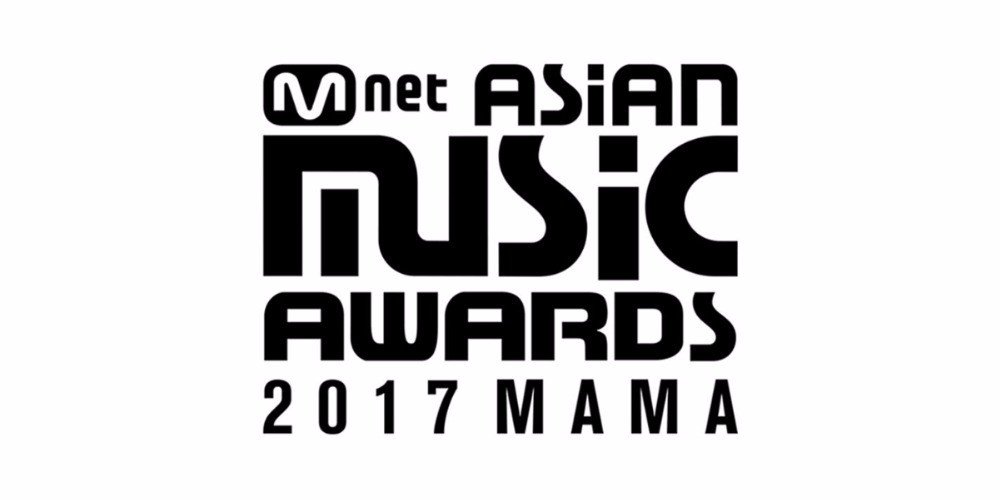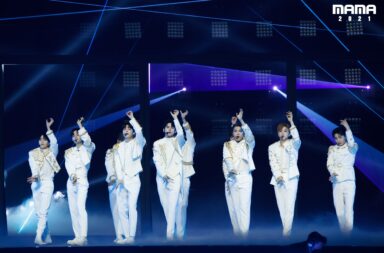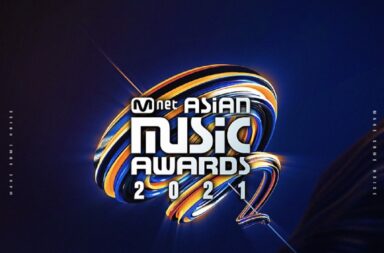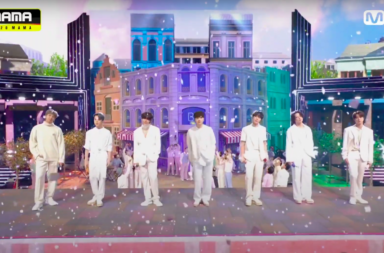 Music award shows in Korea have a history of about thirty years since the very nascent stages of the introduction of pop to the peninsula. Receiving awards has always been a matter of prestige, but today the multiplicity of award shows, the system of voting, opaque criteria for nominations and wins, and the extreme focus on popularity over musicality has diminished their high status. Controversies, boycotts, and poor attempts at transparency seem to have undermined current award shows. From SM Entertainment artists not attending the 2009 MAMA to the Wiz Khalifa and Taeyeon debacle, there are many times when these awards are fraught with negative publicity.
Music award shows in Korea have a history of about thirty years since the very nascent stages of the introduction of pop to the peninsula. Receiving awards has always been a matter of prestige, but today the multiplicity of award shows, the system of voting, opaque criteria for nominations and wins, and the extreme focus on popularity over musicality has diminished their high status. Controversies, boycotts, and poor attempts at transparency seem to have undermined current award shows. From SM Entertainment artists not attending the 2009 MAMA to the Wiz Khalifa and Taeyeon debacle, there are many times when these awards are fraught with negative publicity.
The past few years have been marred by controversies that seem to reflect the decline of award shows and the quality of the honors they dole out. The stand of these shows has also tilted more towards a highly commercial interest which has not proved to be beneficial for the artists themselves. If the integrity of award shows is to be maintained, they need to revert to their original purpose of appreciating art and hard-work, and perhaps reduce their dependency on other paraphernalia.
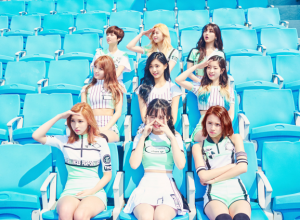 The public has managed to retain a certain amount of trust in the Korean Music Awards (KMA) despite a stoppage of funding from the government. The KMAs do not engage in paltry eye-grabbing techniques like voting or having a popularity category. Instead the show has explicitly mentioned a selection committee as the sole determinant of winners. Last year, Bolbbalgan4 won the Song of the Year category unlike in every other ceremony where Twice was crowned winner. This showcases the KMA’s deviation from the popularity domain.
The public has managed to retain a certain amount of trust in the Korean Music Awards (KMA) despite a stoppage of funding from the government. The KMAs do not engage in paltry eye-grabbing techniques like voting or having a popularity category. Instead the show has explicitly mentioned a selection committee as the sole determinant of winners. Last year, Bolbbalgan4 won the Song of the Year category unlike in every other ceremony where Twice was crowned winner. This showcases the KMA’s deviation from the popularity domain.
Some of the sticky situations that shows find themselves in would be avoidable if only they follow a policy of openly divulging criteria for nominations and wins of artists. Last year’s Melon Music Awards (MMA) awarded the Album of the Year daesang to BTS instead of Exo, despite the latter having higher digital and physical sales. Exo fans petitioned Melon to reveal its reasons for the same, but Melon supposedly used the term ‘internal data’ to maintain secrecy.
The percentages of voting, album sales and record sales also keep fluctuating every year, diminishing the uniformity of the award shows and the predictability of winners. This year the criteria for the MMAs include a 60% weight for digital streaming while judging scores and voting makes up the rest. Since the show retrieves its data from the Melon chart, it does not take album sales into account to determine winners. By having a definitive source like a music chart, the MMAs at least have something concrete backing the distribution of their awards.
 Voting is a dimension which has arguably allowed fans to feel a part of the process of award distribution. However, it is also a thinly-veiled attempt by shows to gain more clicks at the cost of deserving nominees losing out on recognition by virtue of not having a numerous enough fanbase to compete in such large-scale displays of fandom power. The dedication of fans comes into perspective, with award shows fueling this obsession unhindered. The two major shows of the year—Mnet Asian Music Awards (MAMA) and Melon Music Awards—both have categories either based purely on voting or ones where voting carries a large percentage of the total criteria. The artist of the year daesang at the MAMAs is to be determined by a 30% chunk of online votes.
Voting is a dimension which has arguably allowed fans to feel a part of the process of award distribution. However, it is also a thinly-veiled attempt by shows to gain more clicks at the cost of deserving nominees losing out on recognition by virtue of not having a numerous enough fanbase to compete in such large-scale displays of fandom power. The dedication of fans comes into perspective, with award shows fueling this obsession unhindered. The two major shows of the year—Mnet Asian Music Awards (MAMA) and Melon Music Awards—both have categories either based purely on voting or ones where voting carries a large percentage of the total criteria. The artist of the year daesang at the MAMAs is to be determined by a 30% chunk of online votes.
This year, the spotlight of controversy is on MAMA. The award show has broadened its presence and is to be held at three different locations, namely Vietnam, Japan and Hong Kong, across three different dates. This is a new angle that Mnet has introduced, since only the Golden Disk Awards and Seoul Music Awards were previously held on two separate days. The nominations were announced on October 19 and people were prompt in pointing out certain artists who did not gain a nomination in categories that they perhaps should have had. Winner’s name was missing from the Best Male Group category despite an excellent display of their digital power with “Really Really”. The Melon Music Awards has given the group a place in the Top 10 though. Big Bang did not receive a single nomination although the group set fire to the charts earlier this year. Although the group did not release music this year, MAMA has taken into account all releases from October 27, 2016 to October 18, 2017 and Big Bang released their two singles in December 2016. The Mnet-YG Entertainment feud (supposedly on since 2015) seemed to be the rationale for this, but Black Pink has been nominated, adding to the perplexity of the situation.
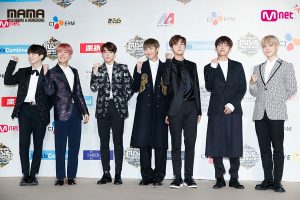
Furthermore, the ongoing voting for MAMA was found to be rigged by the company itself and uncertainty about fake votes and rankings spread like wildfire. Mnet reported that it had discovered false votes being cast between October 26 and November 1. Therefore, it took steps to halt the voting on the 3rd of November to clear out the illegal votes and went on to ban the IP addresses they identified as the cause of these votes. The situation raised grave questions on the security protocols of their web portal and the ability of fans to breach them. Attempts were also made to identify bots and obstruct them as well. Once the system had been cleared, the rankings of most categories had changed considerably. The changed rankings stirred up controversy too, since fans claimed that certain groups were being favored over others and that Mnet was not being transparent in its process of removing the false votes. BTS fans trended the hashtag #STAND_BY_BTS on Twitter as a show of protest against the group’s drop in rankings. Voting has changed the landscape of the music industry through the importance it accords to the mindless support of fans and their motivation to give the best to their idol. Award shows which cater overwhelmingly to the fans, such as MAMA, are well on their way to becoming arenas of irrational bias and overblown drama.
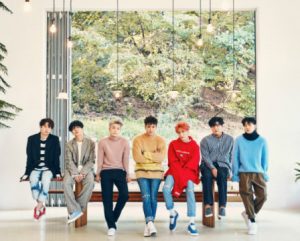 There has also been fresh criticism of some shows distributing awards to idols just for attending them such as the recently concluded Asia Artist Awards. This is not a modern trend though. SM Entertainment‘s boycott of MAMA in 2009 ensured that none of their artists won the coveted prizes despite having had an impeccable year with hits like “Gee” and “Sorry Sorry”. Although YG Entertainment artists did not attend the 2016 MAMAs either, it was not termed a boycott by their representatives and instead scheduling conflicts were stated as reasons for the same. The element of surprise and anxiety over wins has completely vanished since every attendee seems to be guaranteed at least one award.
There has also been fresh criticism of some shows distributing awards to idols just for attending them such as the recently concluded Asia Artist Awards. This is not a modern trend though. SM Entertainment‘s boycott of MAMA in 2009 ensured that none of their artists won the coveted prizes despite having had an impeccable year with hits like “Gee” and “Sorry Sorry”. Although YG Entertainment artists did not attend the 2016 MAMAs either, it was not termed a boycott by their representatives and instead scheduling conflicts were stated as reasons for the same. The element of surprise and anxiety over wins has completely vanished since every attendee seems to be guaranteed at least one award.
The recrudescence of faith in the fair play of shows might be possible, firstly, through a stance on the part of the fans to not actively support shows that lack transparency and secondly through a withdrawal of shows from their overtly profit-oriented goals. Shows have turned into clashes between fanbases rather than a discussion of the artistic abilities of the idols. This deterioration in the sentiments of award ceremonies is not only reducing general interest in them but also creating a septic fan culture. The inclusion of voting and the awards’ constant embroilment in controversies has obliterated the credibility of most award ceremonies.
( Naver[1][2], Billboard, Korea Herald, Mwave, Twitter, SBS, MMA, KMA, APA Images via Melon, Mnet, LOEN Entertainment, JYP Entertainment, SM Entertainment)
